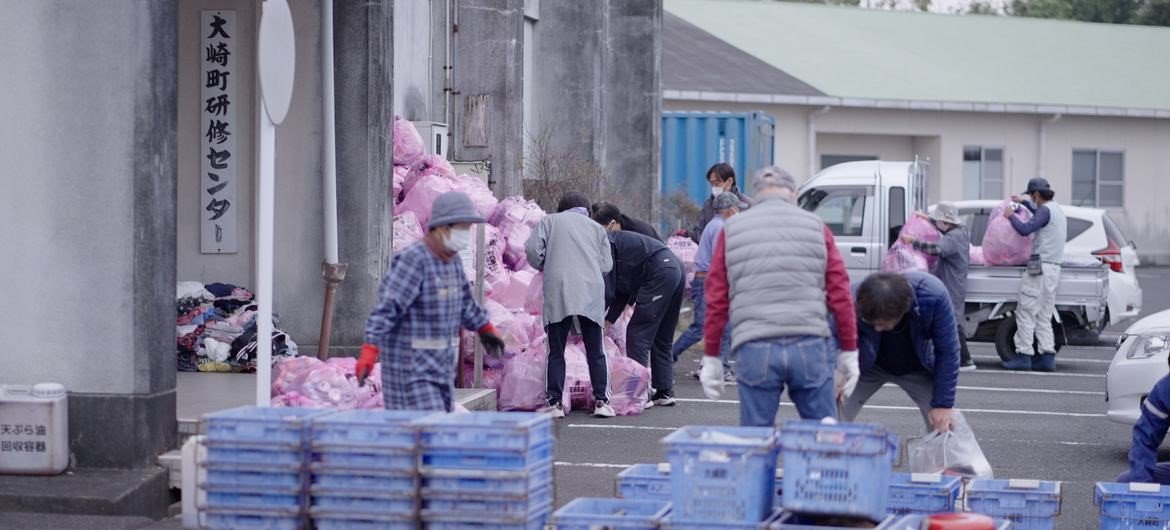When the landfill in Osaki, in the southwest of Japan, reached capacity, an incinerator was the logical next step. Instead, the town decided to get serious about recycling, reports the UN news.
“We have been recycling for so long that it is not a problem anymore,” says Kasumi Fujita, a town councillor committed to Osaki’s low waste policies speaking to UN News.
Fujita mentions that waste is sorted in 27 different categories in Osaki. 26 categories are sorted and recycled, while only one category (blue bags) go directly to the landfill without getting incinerated.
Fujita moved to Osaki in 2021 to work with the municipality, business sector and local community to help prepare the town for a more sustainable future. Today, Osaki, with a population of around 12,000, recycles a remarkable 80 per cent of its waste, and was able to avoid building an incineration plant.
“I have always wanted to work for something related to the climate crisis, and strongly felt that I needed to act. That is why I came to Osaki. Here, waste is sorted into 27 different categories. Since there is no incineration plant, only blue bags go directly to the landfill without getting incinerated, whilst the other 26 categories are sorted and recycled properly,” says the town councillor.
Download Nagaland Tribune app on Google Play

For example, in Osaki town, plastics are separated into different types and then compressed. The compressed waste will then be taken to recycling factories all over the country.
Food waste is collected three times a week with a blue bucket. It is crushed into smaller pieces. Pruned plants will also be brought in, where they are mixed together with the food waste. The pruned plants contain many native microorganisms. As they decompose, the waste turns into a rich compost, almost all which is used as on Osaki’s farms.
“I think the process is very simple and can be practiced anywhere in the world. In fact, our process has been introduced to Indonesia: Osaki Town officials and the recycling centre staff went there to demonstrate our techniques for separating and composting food waste. This may become a solution to a problem that many developing nations face right now,” maintains Fujita.
The town councillor is also of the firm belief that waste management should not be designed with an incineration plan from the beginning.
“I really feel people should learn more about the process of what happens to products after we use them, and how complex the issue of waste is. At the same time, they will realize that we can reduce waste. Businesses and local governments also need to understand the situation. We have to mobilize everyone to make a difference.” states Fujita.
Watch here:

